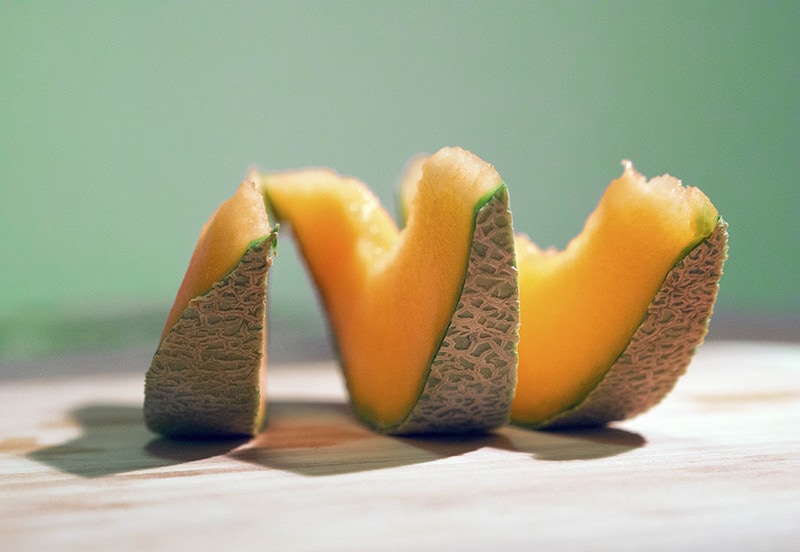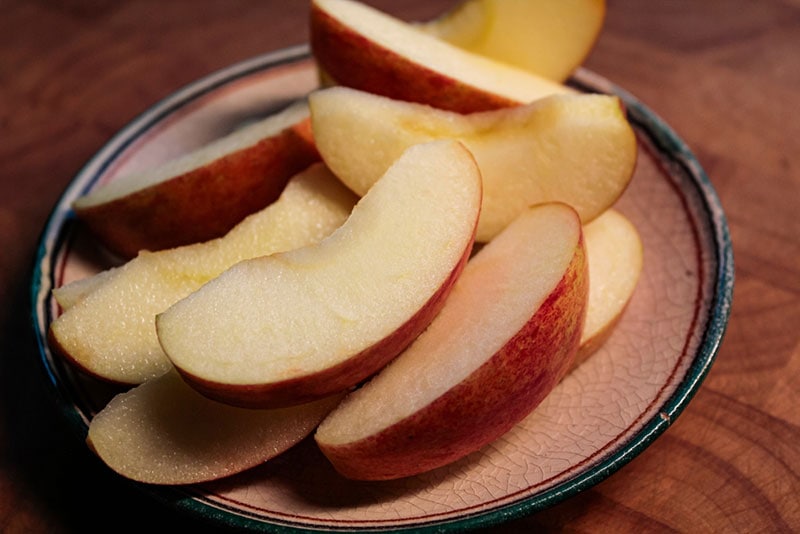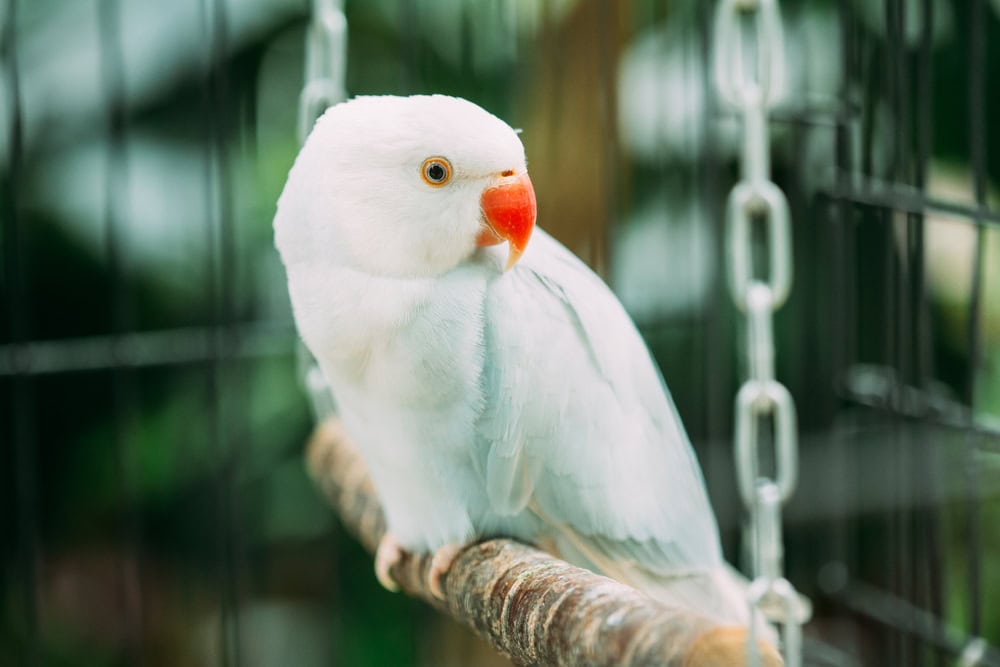Can Parakeets Eat Cantaloupe? Vet-Approved Nutrition Facts
Updated on

Disclaimer: This article has been fact checked by a veterinarian, using information available at the time of review. It provides a guide for food safety and should not be considered an individual nutrition plan for your parrot. We recommend consultation with a veterinarian before making any dietary changes.
There are numerous parakeet species in existence, and most of them eat the same things to stay happy and healthy, both in the wild and as pets. Today, we will focus on the Rose-ringed parakeet (Psittacula krameri). This parakeet is legal to own as a pet in most USA states, however ownership is restricted in Hawaii. This type of parakeet (and most others) enjoys having fruit as part of their overall diet.
So, can rose-ringed parakeets and parakeets in general eat cantaloupe? The short answer is yes! Parakeets can eat cantaloupe, but there are a few things that you should know before you offer such a fruit to your winged companion.
Cantaloupe Nutrition Facts & How They Benefit Parakeets

| Nutrient | Amount per Serving
(per 1 Cup, Diced) |
Benefits |
| Carbohydrates | 12.7 g | Provides energy necessary to optimally function throughout the day |
| Protein | 1.31 g | Helps muscle maintenance and growth |
| Potassium | 417 mg | Ensures the balance of fluids and proper nerve function |
| Vitamin C | 57.3 mg | Thought to increase the immune system |
| Calcium | 14 mg | Supports optimal nerve function, improves reproductive health, and strengthens bones in conjunction with phosphorus. |
How Much Cantaloupe Should a Rose-Ringed (and Other) Parakeets Eat?
One problem with Cantaloupe is that it is much higher in phosphorus than calcium. As these elements work together in the body for skeletal health their ratio is important. Birds should have about double the amount of calcium that there is phosphorus.
Cantaloupe should be offered as a small part of a parakeet’s diet, no matter the species. The more cantaloupe that is included in their diet, the less room there is for other fruits, veggies, and species-appropriate pellets that are necessary for optimal health and happiness.
Cantaloupe can be served a couple of times a week as a snack, treat, or part of a meal. Only offer a couple of small chunks (about 1 inch in size each) at each serving. This should help ensure that they have plenty of room for other types of foods during meals and snack time.

How Should Cantaloupe Be Prepared for Rose-Ringed (and Other) Parakeets?
Make sure to wash all fruit served to your bird. Then, all you have to do is cut some of the flesh into small chunks and offer it fresh and raw. You can blend cantaloupe and water into a smoothie if you want to incorporate extra hydration or are tending to a birdie that’s feeling under the weather (under the direction of your vet). You can also make feeding time exciting by mashing cantaloupe with oats and seeds for added nutrition and texture.
What Other Fruits Can Parakeets Eat?
There are various fruits that your pet rose-ringed parakeet can and should eat as part of their overall diet to ensure good health throughout their lives. Here are easy-to-source options to consider:
- Apples
- Bananas
- Blueberries
- Coconut
- Grapes
- Mangoes
- Pineapples
- Strawberries

Here’s What to Do If You’re in Doubt
If you are ever in doubt about what your pet parakeet should be eating, whether it’s cantaloupe or another type of fruit or vegetable, it’s a good idea to schedule an appointment with an avian veterinarian for a checkup and expert diet recommendations. You don’t have to feed cantaloupe to your pet birdie if you feel uncomfortable doing so for any reason.
Conclusion
Parakeets, specifically rose-ringed parakeets, can eat cantaloupe for fun and health. Most parakeets love fruits like cantaloupes, but not all of them do. If yours doesn’t seem to show interest in cantaloupe, try other types of fruits to determine what they do and don’t like. From there, you can adjust their diet accordingly.
See also:
Featured Image Credit: Nitr, Shutterstock











